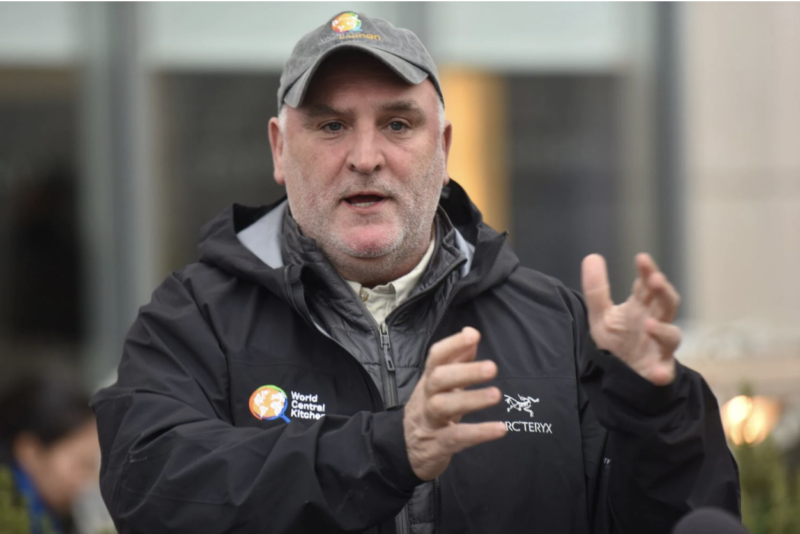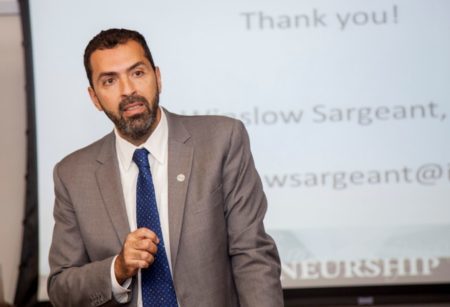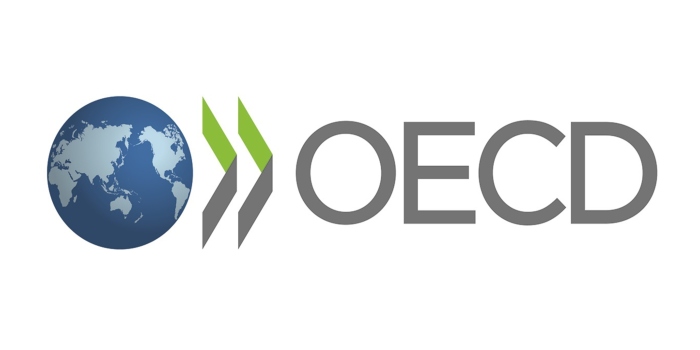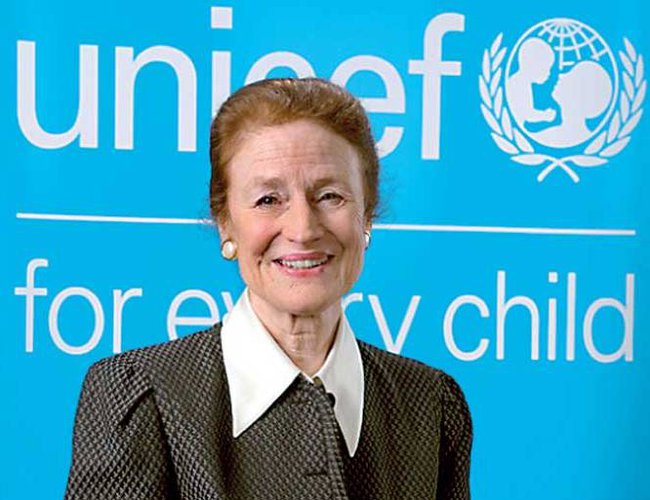

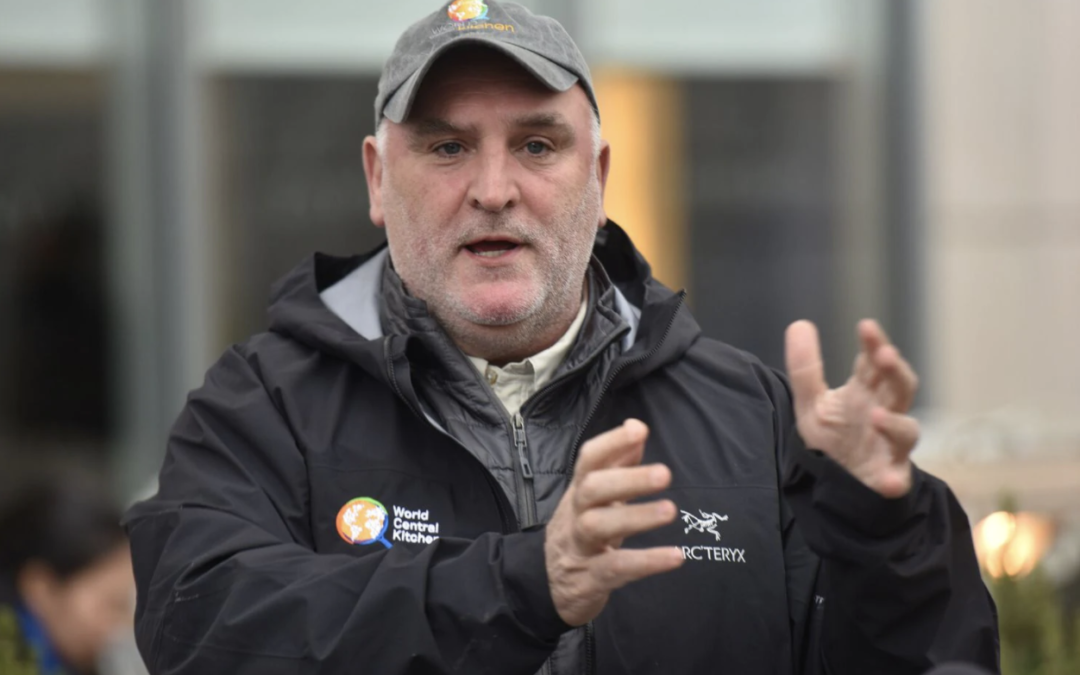
José Andrés says “people have to eat,” so his shuttered restaurants are now community kitchens
José Andrés says “people have to eat,” so his shuttered restaurants are now community kitchens
Sunday, March, 22, 2020 By Tim Carman, Washington Post
José Andrés says “people have to eat,” so his shuttered restaurants are now community kitchens
Sunday, March, 22, 2020 By Tim Carman, Washington Post
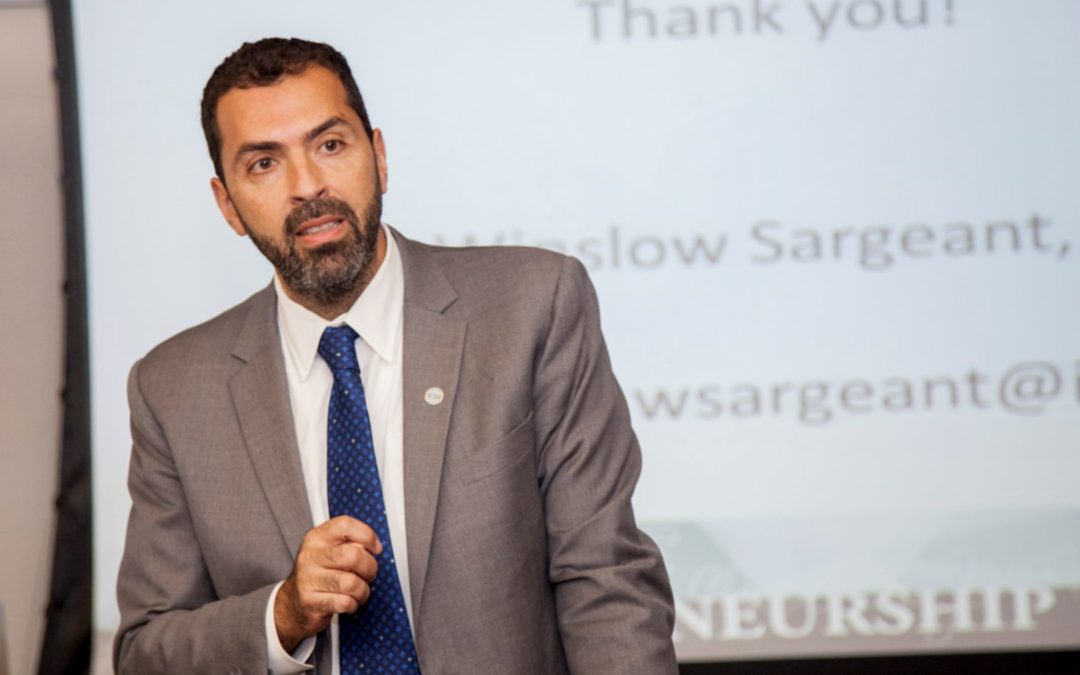
ICSB Proposes an Audacious Plan to Save Small Businesses!
ICSB proposes an Audacious Plan to Save Small Businesses – If we continue to think small in terms of solutions, we will be stuck in small and incremental changes
Sunday, March, 22, 2020
ICSB proposes an Audacious Plan to Save Small Businesses – If we continue to think small in terms of solutions, we will be stuck in small and incremental changes
Sunday, March, 22, 2020
An Audacious Plan to Save Small Businesses – All small businesses below 50 employees become tax-exempt as not-for-profits for 10 years.
“The world isn’t getting better, but technology is,” words spoken not by leaders but by an astute 9-year-old. The truth of that is like a thunderclap. Business innovation makes constant advancements, but oftentimes it’s at the sacrifice of humane practices. The very things that improve the quality of life for some come at a high “people” cost for very many others. Business innovation improves while humanity is removed. And that is when things are going relatively well.
The expression “desperate times call for desperate measures” may have sounded overused or laughingly cliche a few months ago, but those words have come to life around the world in just a few short months. The world, as we know it, is changing in front of our very eyes, and the aftermath of crisis will require more change, especially when we see the fractured economic crisis we are left with.
We think of economies and businesses as inanimate entities, but they are born, raised, and die on the backs of living, breathing people. They are inextricably linked, so when businesses go into crisis, so do the people who work for them. Particularly vulnerable during this time are small businesses that cannot afford to give employees extended paid leave and employees who depend on a weekly paycheck. Now is the time for large-scale measures to protect vulnerable businesses and workers, particularly seniors who face greater risks to their health and well-being.
If we continue to think small in terms of solutions, we will be stuck in small and incremental changes will only affect incremental improvements. But circumstances prove that the status quo is not enough. These desperate times, they call for, let’s not say “desperate” measures, but a well-thought-out plan. An audacious plan implemented on a global scale. What would that plan look like?
The Audacious Plan asks for the following 5 Guiding Principles:
1. All small businesses below 50 employees become tax-exempt as not-for-profits for 10 years. Small businesses are the lifeblood of their communities. Aside from selling necessary products or services, they provide social and community cohesion as well as jobs. Times of crisis like these hurt small businesses the most, which in turn harms society on a human level. When bars, restaurants, and other places for recreation suffer, socializing goes down. It should be considered a higher civic duty to make sure small businesses can survive. Countries can figure out ways to make money that don’t put a strain on small businesses. Big box stores in an area often beat up small businesses, and many of those wounds lead to their death. Giving small businesses tax exemption helps balance out the disadvantage, keep and create jobs, and generally give the local economy a much needed shot in the arm.
2. All countries establish standards for online education for a national education program for K-12 education in partnership with global IT firms. In this age of digital and virtual technology, pandemic or other disasters shouldn’t have to grind education to a halt. Citizens pay taxes for public education, but in many cases, it is not paying for alternatives in cases such as these. But even many affluent neighborhoods have schools without the ability to conduct education online, making it not solely an economic issue. The attitudes of educators need to be adjusted to view educated children as their civic duty under any circumstances where it is possible.
3. All public teachers and nurses get tax free benefits and free graduate education like veteran benefits. Teachers and nurses are a new breed of modern-day and all too often unsung heroes that should be given the benefits of such. Teachers are on the front lines trying to keep order, educate, inspire, and protect our children, whether the classroom is online or in real life. They often the first line of defense for children. Nurses help heal, comfort, and care for patients in close contact, putting their own health and well-being on the line daily. They fight a different war but a war; nonetheless, one that requires self-sacrifice. They should have the benefits of someone who serves and sacrifices for their community, including free tuition, tax-exemption, and healthcare benefits.
4. Free internet funded by local governments. Once a novel technological luxury, the internet can be very nearly regarded as a necessity in this era. Like many necessities, not all can afford it. The mindset towards internet access needs to change from being considered a private luxury to a public good. When citizens pay taxes for public services, the internet should be one of them. Internet for all.
5. A Global Small Business Congress to held on June 27 at the United Nations. For any of these guidelines to be enacted, there needs to be a meeting of minds; a summit for the people and by the people—organizations without government affiliation–to meet to discuss these plans. June 27 is the United Nations International Day for Micro-Small and Medium-sized Enterprises (MSMEs Day). The day was proposed by ICSB and presented by Argentina to the UN General Assembly. This day is our meeting point.
We need to move swiftly forward with the Audacious Plan to Save Small Businesses.
Article written by:
Dr. Ayman El Tarabishy
ICSB Executive Director
Deputy Chair and Professor at George Washington University School of Business

We can’t travel, but we can take measures to preserve jobs in the tourism industry
We can’t travel, but we can take measures to preserve jobs in the tourism industry
Saturday, March, 21, 2020 by Caroline Freund,World Bank Blogs
We can’t travel, but we can take measures to preserve jobs in the tourism industry
Saturday, March, 21, 2020 by Caroline Freund,World Bank Blogs
The tourism industry is at a standstill. Even as policymakers around the world seek ways to mitigate the economic impact of the COVID-19 (coronavirus) pandemic, recovery can’t begin until the health emergency is under control and travel restrictions can be lifted safely. The longer the health crisis lasts, the more difficult for companies to survive, especially the small- and medium-sized enterprises that make up a big share of the tourism ecosystem, and greater the distress for workers.
, a reduction of between 12 and 14 percent. In many countries, tourism is the largest contributor to GDP, forex and employment – particularly for vulnerable groups, women and youth. For developing countries strongly dependent on tourism for gross domestic product— 20 percent for 37 countries —the health crisis is already a national economic crisis.
Early on, many unaffected destinations invested in marketing campaigns to attract those who still wished to travel. In line with WHO guidance, we all have a responsibility to do our part to ‘flatten the curve’ and curb the transmission of the disease. This means restricting movement and reducing all forms of interaction – including travel.
The most forward-thinking industry and destination brands aim to show sensitivity and build trust –
Where various actions can be coordinated and integrated together the recovery is likely to be quicker. Below are some interesting examples.
- Generating alternative revenues. Destinations and industry are considering innovative ways to maintain some revenue while discouraging travel. For example, these include pay-it forward voucher schemes – for example ‘I Love Manchester Scheme’ , and ‘consume-at-home’ content like virtual tours, destination audio-guides, restaurant or hotel-branded online cooking, yoga, spa classes, and restaurant delivery services.
- Minimizing revenue loss. Industry are waiving rebooking charges and incentivizing guests to postpone instead of cancel.
- Planning and communication. Destination communities and associations are forming virtual emergency response groups, with objectives, including uniting on closing all attractions and monitoring and communicating with trade buyers and consumers through social media. The best communications should focus transparently on the health risks, cases, and mitigation measures, like Visit Copenhagen and Saltzburg, Austria. Joint agreement on the most important asks from government, financial sector, industry associations, and employee unions may also speed action.
- Informing the industry. Governments and associations can prepare advice and updates on all measures being taken for the industry and/or their members – and how to access support. The National Federation of the Self-employed and Small Businesses in the United Kingdom have a comprehensive breakdown of all the assistance measures.
- Reducing tax burden. Governments are suspending or reducing income tax payments, business rates, VAT and other fees applicable to business, including PAYE deferral and paid sick leave to provide relief to staff on reduced incomes. New Zealand announced large-scale tax relief packages, and Myanmar has waived two percent advanced income tax on exports.
- Contamination Support. Public financial support and/or supplies to businesses to manage the costs of physically dealing with the effects of the virus, such as deep clean services, for example Singapore Cleaning Support Fund for Hotels .
- Providing liquidity. Governments, financial institutions and other bodies are offering grants, funds or alternative capital for those most at risk (SMEs), for example see the U.S. Small Business Administration response, as well as extending lines of credit or working capital. Reducing debt Banks are extending mortgage relief and deferrals in loan repayments. Redeploying assets. Destinations are examining opportunities to re-deploy staff or tourism assets to support public health agenda, such as retraining flight attendants to support testing facilities or using hotels as health care facilities for low risk patients.
– the global financial crisis, H1N1, SARS, tsunamis, Ebola. Where we have existing tourism programs with destination clients, we will look to redirect program resources to help address the immediate crisis, and support client governments as they take measures to make tourism more resilient and ready for the recovery that will eventually come.
––Attributed from World Bank Blogs
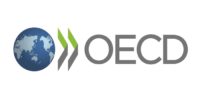
OECD note “COVID-19: SME Policy Responses”
OECD note “COVID-19: SME Policy Responses”
Friday, March, 20, 2020
OECD note “COVID-19: SME Policy Responses”
Friday, March, 20, 2020
The COVID-19 outbreak has uprooted life as we know it and our public health system is working hard to combat this. We all can feel the impact on our economies and especially on SMEs that is causing us to to innovate and adapt. These changes are huge and will have long term effects that need to be tackled.
The OECD note “COVID-19: SME Policy Responses” provides detailed information on the effects of the virus on SMEs and an overview on the first measures countries are implementing to foster SME resilience. This note gives excellent insight on these issues and may help us think about the future challenges we are going to experience as a result of this crisis! Read the full note below!

